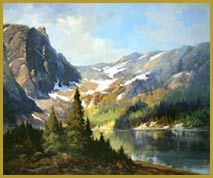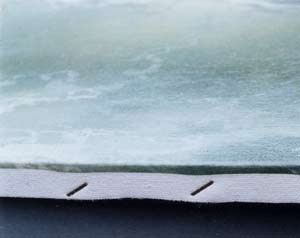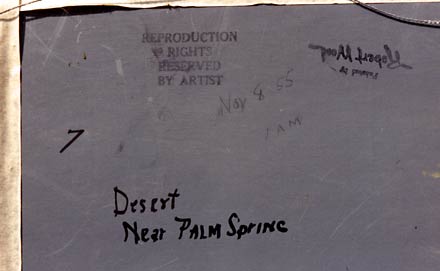 |
 |
|||||||||||||
 |
||||||||||||||
 |
||||||||||||||
|
|
||||||||||||||||||
|
There are quite literally millions of Robert Wood reproductions dispersed across America and around the world. Unfortunately, to the untutored eye it may be difficult to discern one of these reproductions from an original painting. Art dealers frequently receive calls from people who believe they have inherited or found an original work by Robert W. Wood. Unfortunately, in the vast majority of cases their discovery is simply an old reproduction with a value of perhaps a few dollars. Robert Wood reproductions come in many sizes and were printed on paper, cardboard, and, in the 1970s and 1980s, even "transferred" to canvas, making some of them even easier to mistake for an original painting. Robert Wood reproductions were even available in nice frames with brass title plates, giving them a more refined appearance. There are literally millions of reproductions in circulation. |
||||||||||||||||||
 |
||||||||||||||||||
 |
||||||||||||||||||
|
So, the question arises as to how a print can be told from a real painting. The first thing to note is that all the Robert Wood reproductions, with the exception of the serigraphs done for American Express in the early 1970s, were photo-offset reproductions. This means that the method of printing is the same one used for the printing of magazines. Thus, the easiest way to tell a reproduction is by using a photographer's or jeweler's loupe or simply a magnifying glass to examine the work in question. Under close examination, a reproduction can be seen to be made up of tiny dots, as if it were a mosaic. So if you see a pattern under magnification, what you have is a reproduction. If, on the other hand, you can feel the brushwork and textures of oil paint, what you have is likely an original painting. |
||||||||||||||||||
 |
||||||||||||||||||
|
Reproductions also will have a title and perhaps an inventory number and the name of the publisher in the white margin that may surround the image or even on the edge or corner of the image itself. However, if you have determined that you have an original painting, that still doesn't mean it is an authentic Robert W. Wood. If you would like to have your painting examined to determine its authenticity, you can have us examine and appraise it. |
||||||||||||||||||
 |
 |
|||||||||||||||||
| Example of a print on canvas. Notice the uniform edge of the image and the smooth surface without visible brush strokes. | ||||||||||||||||||
| The back of an original Robert Wood. Most of his works are marked with some version of the "Reproduction Rights" stamp visible above and titled by hand. His works were only occasionally dated. | ||||||||||||||||||